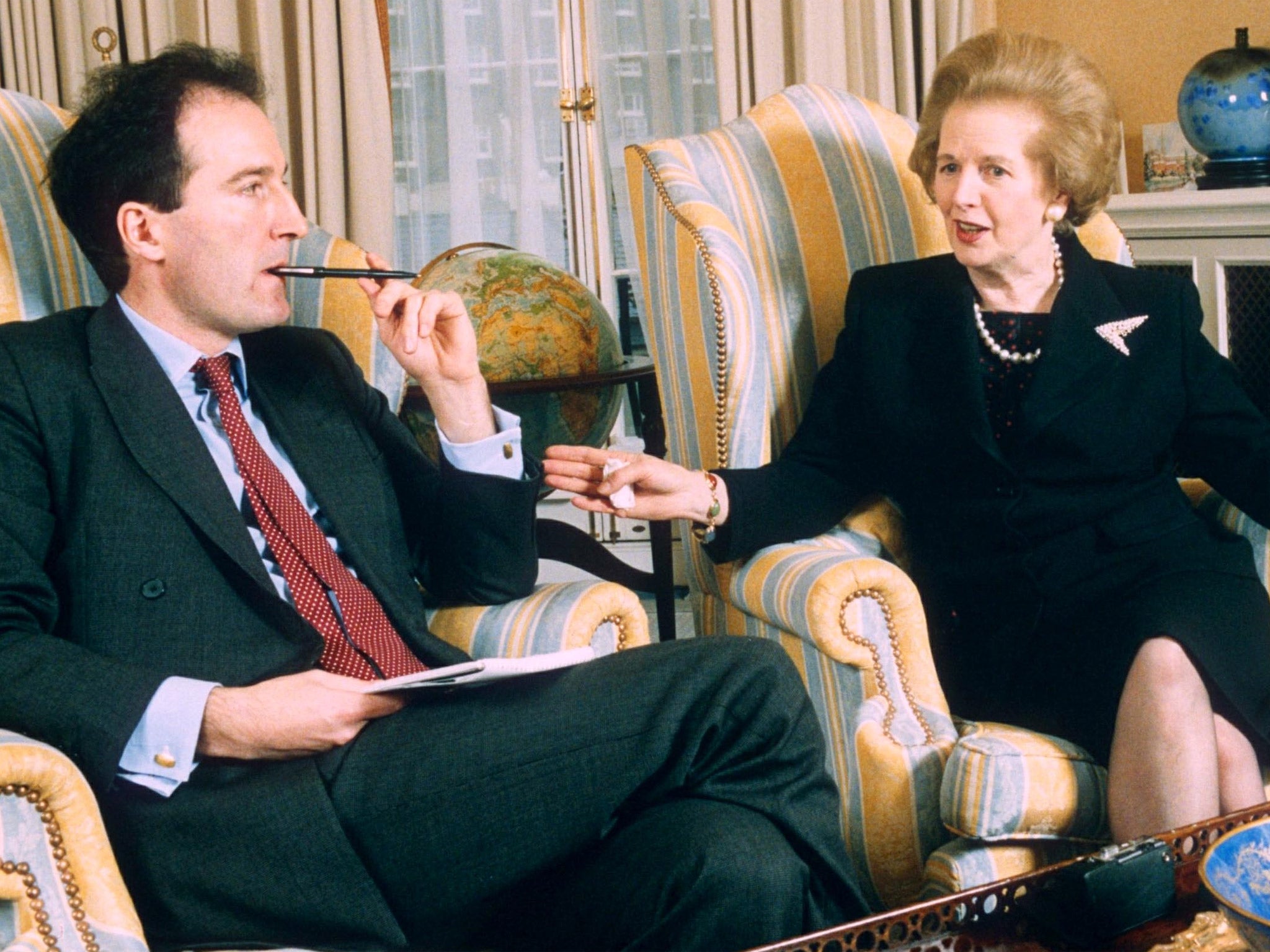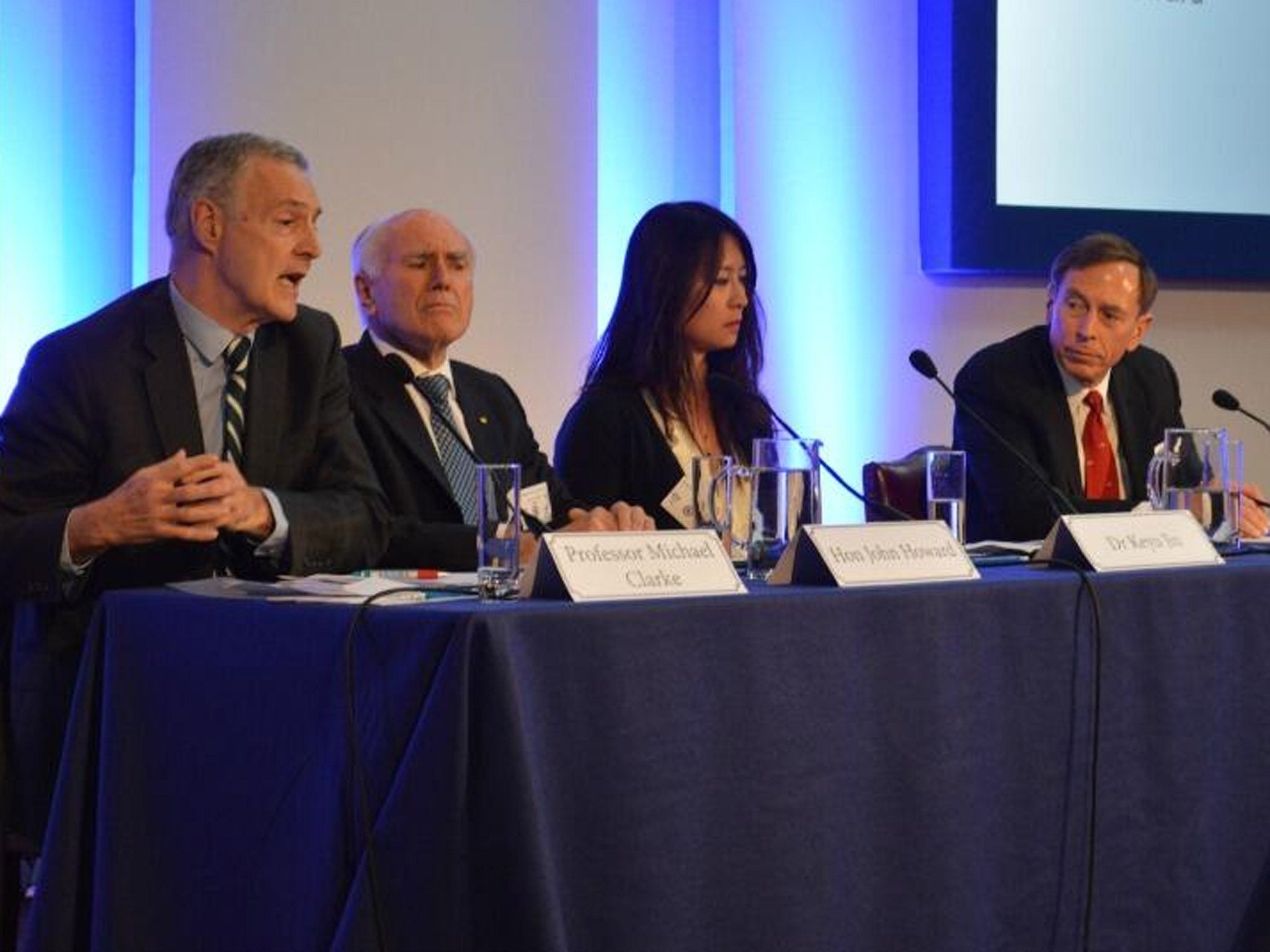Margaret Thatcher Conference on Liberty: Iron Lady’s worshippers laud the past and lament the present
Archie Bland joins the right-wing crowd at the Margaret Thatcher Conference on Liberty – and finds little support for David Cameron

Five minutes in to the second session of the Margaret Thatcher Conference on Liberty, the Iron Lady gets her first proper round of applause. It comes during a speech by Radek Sikorski, the Foreign Minister of Poland and an avowed aficionado, who proudly tells the true-believing crowd of his visit to No 10 during the 1980s.
The appreciation is heartfelt, but Mr Sikorski isn’t done. He shows us a picture of the two shaking hands, and a copy of a handwritten letter from Mrs Thatcher that he treasures to this day. Exactly how salient this is to his assigned topic – “Has the West gone soft? 25 years on from the fall of the Berlin Wall” – isn’t clear, but it all goes down a treat.
Next up is Taavi Roivas, the sickeningly youthful Prime Minister of Estonia. Still only 34, he was 11 when Mrs T left office, so he never got to meet her. But, he tells Mr Sikorski wistfully, “I am very jealous that you had the chance.”
From all over the world they have come, to pay tribute to the right wing’s most beloved icon, and to ask how her legacy can be restored. But it’s not all nostalgia. There is a wider agenda today – one that has all parts of the right-wing establishment out in force, from Toby Young and Niall Ferguson to Rachel Whetstone and Roger Scruton. With David Petraeus and John Howard leading a hefty foreign contingent, one shudders to think of the airfare bill.
The conference has been put on by the Centre for Policy Studies, the think-tank that Thatcher founded back in the 70s and which provided much of the intellectual weight to her political agenda when she reached the throne.
There’s a palpable yearning for the modern Tory party to adopt a similar ideological clarity. “Thatcher came to power with wind in her sails from the CPS,” says Fraser Nelson, editor of The Spectator. “It was an intellectual counter-revolution. Right now I don’t see the same thing happening. We’re still in political limbo.”
Forwards, not backwards: that strange subtext comes through again and again, a regretful sense that, although Thatcherism is a wonderful thing, it may not always be a good idea to go on about it out there.

Professor Michael Wohlgemuth, director of the German think-tank Open Europe Berlin, puts the problem bluntly early on. “Why is it,” he asks, “that we Thatcherites, we Hayekians, are not much more popular?” His tone, although realistic, is also a little wounded, the plaintive query of the class swot who wants to know why everyone isn’t glad he reminded the teacher about their homework.
His answer is an interesting one: because people think that Thatcherism is pro-big business, rather than pro-market. It’s a theme that the CPS has embedded in the day’s events. Big business, the faithful are mostly told, is not our fault. “Crony capitalism, cartel capitalism have rightly attracted so much flak,” says Tim Knox. “But we think the true long-term solutions are free market policies. We think the distinction’s been lost.”
The CPS and its allies think they are on to something, and so it is that they finally roll out #thepolicy. Lord Saatchi shows us a picture of a rather tatty looking door on the Heathrow Express. “This door,” he says firmly, “is not what Mrs Thatcher intended!”
The door is not the door that Mrs Thatcher intended because it is, ultimately, owned by a very large company, and that company is part of a “global cartel”. To break such cartels and empower the little guy, Lord Saatchi is proposing to relieve small businesses of corporation tax, and investors in those business of capital gains tax, moves that the CPS says will amount to a tax cut of £11bn a year. The Treasury won’t even lose any money, Lord Saatchi adds, with the flourish of a magician yanking a rabbit from a hat: the revenues associated with all the new jobs created as a consequence will soon make up the shortfall.
Rabbits from hats are sometimes not all they seem. But it’s a bold contribution to an intellectual debate that some on the right feel has run out of steam. “Ideology has been sucked out of politics,” says Knox. “There’s this tendency to drift to managerialism. Politicians find it hard to articulate what they stand for.”
The problem, most of those present seem to think, goes all the way to the top. None of the speakers praise David Cameron. But he does feature once: getting it in the neck from Lord Powell, who was Thatcher’s foreign affairs adviser, for falling victim to something called “inquiry-itis”. Then Lord Powell confides, apropos of not-that-much, that the only thing his boss ever cooked was shepherd’s pie. A delighted murmur ripples round my section of the hall. “Shepherd’s pie!” someone whispers. “I love shepherd’s pie!”
Join our commenting forum
Join thought-provoking conversations, follow other Independent readers and see their replies
Comments